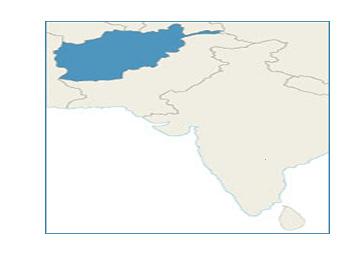|
Community Development Through Programming
Community development is the mission of BRD. BRD conducts training programming in Civic Education, Peace Education, Human Rights Education, and Capacity Building. It also conducts Nonviolence training, which includes the essential training in conflict resolution skills. In addition, to benefit all community members, BRD will conduct services for the improvement of the health and education of all citizens of Afghanistan.
|

Afghanistan has endured over 23 years of civil war and numerous natural disasters. It is one of the poorest countries in the world with standard indices lying amongst the lowest. It is currently experiencing relative stability and is in a transitional phase moving from receiving emergency and humanitarian assistance to undergoing reconstruction and long-term development programmes. |
|
BRD's Approach to the Development of Women
BRD puts female participation at the center of its work. Working with as many stakeholders in the community as possible, this strategy will have a greater impact than simply imposing resources or activities without consultation. All community stakeholders but particularly women must be allowed to freely voice their ideas, opinions and needs regardless of status or ethnicity. This approach can generate possible new solutions in achieving shared goals and ideals. BRD believes human rights including an education, a livelihood, healthcare, a safe environment, a stake hold in the future and equal access to opportunity are all vital to the development process and in particular to enabling women to fulfill their potential. BRD regards lack of access to rights such as these as denial of and against human rights. This approach goes much further than just improving levels of income in impoverished communities.
|
|
Participatory Involvement with Communities
BRD seeks to implement projects in areas of Afghanistan where it is practical and feasible to do so, i.e. where it can be most effective. It identifies these areas by considering the community needs it can respond to and the viability of working in it. At present, BRD only works in the Central Region of Afghanistan including Kabul. However, the organization intends to expand its projects and activities into other regions including the South East Region, and the East Region depending on funding and resources. It is essential that proper analysis is undertaken by BRD based on how specific needs and lack of access to facilities match it competence, ability and effectiveness. It uses a range of techniques and tools to assess how it may work in an area, what work it may carry out and what shape its takes the form of. Techniques used include Participatory Rural Assessment, People Oriented Planning and Objective Oriented Planning. In addition, BRD has to continually assess the political climate where it works to ensure that it is possible to carry out work. Community participation and contributions will make up a crucial part of the implementation process. Participation is understood as the direct involvement of community and local authorities in the process of identification, planning, implementation, monitoring and follow up of a project. Women are considered as direct participants. The contribution is understood as financial and physical contribution of the community and authority for implementation of a project.
BRD prioritizes its work to benefit women in communities who would be recognized in global terms as disadvantaged and dis-empowered.
Putting Gender on the Agenda
BRD must be committed to supporting gender equity, which is crucial if it is to develop its ability to target the disadvantaged. Equally, they must be underpinned by a strong understanding of gender issues. Where newly established women's organizations are institutionally weak, BRD also promotes improving their skills of to provide a sufficient service to women in a programmatic way. This will improve the institutional capacity of such NGOs in terms of planning, coordination, project design and will give them the ability to provide a service in a sustained and programmatic way.
|
 The Projects of BRD
The Projects of BRD
BRD currently implements projects and activities through its central office in Kabul. At present, it does not have regional offices, but does have two provincial site offices, which were recently established. BRD employs 12 Staff in its Kabul office and 2 staff in each provincial office. It is now implementing two projects including a Needle Craft programme in Kabul and a training programme for NGO staff in the Central Region. |
